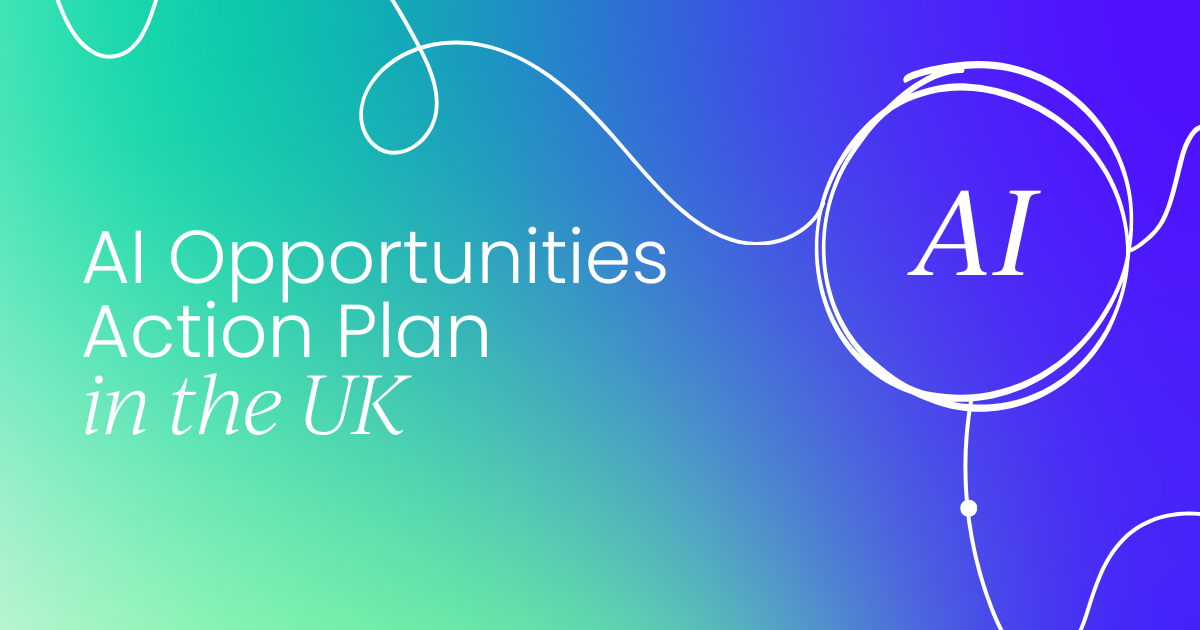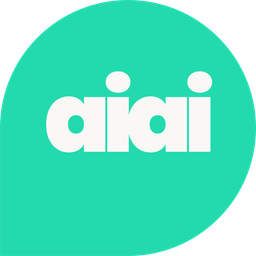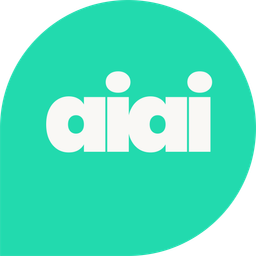Academia-industry relations: a critical linchpin in the United Kingdom’s desire to be an Artificial Intelligence (AI) prowess on the world stage. Beyond becoming a hiring partner and offering graduate programmes, there’s many ways in which the industry can work with academia to carve out a path of AI knowledge.
Examples range from in-faculty incubators (designed to help students/graduates launch their business idea), Knowledge Transfer Partnerships (KTPs) (which link academia and industry together to solve industry challenges) to being involved strategically on Industry Advisory Boards (IABs).
As AI continually advances and transforms the world around us at breakneck speeds, what’s next for this important relationship?

The knowledge formed through the links between industry and academia was one of several critical areas for advancement outlined in the UK’s National AI Strategy: a framework introduced back in 2021 by the Department for Science, Innovation and Technology.
The aim was to outline an action plan to help the UK become an AI superpower behind the likes of the USA and China, covering areas ranging from increasing the number of Centres for Doctoral Training (CDTs) to increasing investment in critical areas for AI research, for example in Defence and Cyber Security.

In amongst outlining improvements listed above, the document showcased the increasingly important role of academia in shaping understanding of the said technologies. From this, we’ll start with the digital skills gap.
Digital skills gap and industry-academia relations
When talking tech, the digital skills gap finds a way of creeping into conversations: an ever-increasingly important area where there just aren’t enough skilled workers to fill the expanding list of digital-based vacancies. When the National AI Strategy was first released, it outlined a 16% increase in both AI and Data Science job vacancies in 2020 with 69% of vacancies being hard to fill [1].
In addition, the Turing Institute’s AI Ecosystem Survey found 81% of respondents agreed there were significant barriers in both recruitment and retraining of top AI talent within their respective sectors in the UK [2].
Furthermore, a more recent 2023 Forbes IT Skills Gap Report found that over 93% of businesses agreed an IT skills gap existed [3], with numerous companies highlighting several key contributing factors, namely: 41% identifying a lack of training and 37% believing the gap stems from a lack of relevant educational opportunities [3].
When it came to the core skills in 2023, 2 in 5 employers recognised AI and Machine Learning as being the top skills [3] and from a management standpoint, 71% of Chairpeople along with 71% of business partners believe AI holds the most value in today’s market [3].
Narrowing the skills gap is an incredibly challenging endeavour, especially with the dynamic nature of the macroeconomic forces pushing and pulling against both industry and academia, but one way to start the effort is within Education.
Since the publication of the National AI strategy, over 2,500 Masters conversion courses have been delivered in England, and in the first year of the introduction of these programmes 1,200 students enrolled with 22% receiving scholarships [1].
The Office for Students (OfS) have and continues to be an integral part of this, having allocated £18.1 million since April 2020 to drive the delivery of 1,818 postgraduate course scholarships across the AI and Data Science spectrum [4].
To continue the solid uptake of enrolment, the OfS recently announced an additional £8.1 million in funding to be distributed across 31 universities and colleges (including 7 as a collaborative project) to deliver scholarships across the 2023-24 academic year [4].
Whilst the funding boost aim is to continually increase the accessibility of such courses, It’s important to recognise AI’s rapid development creates a continually moving see-saw: industry beavering away behind the scenes to test tools and find what works for them, whereas academia seeks to learn from industry what students need to know to thrive in the job market.
Whilst the wider digital skills gap is an area of ongoing concern, industry are also likely battling their own internal multi-dimensional skills gap: whether it be understanding the ever-increasing list of new programming frameworks to transform algorithms to actionable insights or understanding the ever-changing role of data and how it’s affecting the hiring landscape.
It’ll therefore be key for both sides to monitor trends, but unless there's a bottomless pit of capital to continually iterate resources at the pace they’re released, it’ll be some time before benefits are keenly felt on the ground.
Industry Advisory Boards
Turning to an area of increasing importance is the Industry Advisory Board (or IAB for short). Widely adopted at many institutions on a faculty or departmental level (sometimes both, and sometimes even on a programme level), this area of engagement is seen as a core method in which academia can pick industry’s brains about the wider industrial environment that may not easily be observable from inside a university.
There’s numerous angles on which industry can provide input but in a broader context, the board is there to ensure the university department (and wider faculty) has a commercially sound research, development and employability strategy. In addition to the strategic element, members also provide external insight into the department curriculum: making sure course modules teach students in-demand skills.
It’s important to keep in perspective that whilst the board remit is there to help steer the academics, the pace of technology creates tug of wars in how operationally and commercially feasible it is for the department to change course in the event of major technological innovation industry pilot en-masse.
Industry-academia relations into 2024
With digital skills gaps and Advisory Boards out of the way, this leaves the question of what lies ahead. There’s two particular areas I feel will carry increasing importance as we move into 2024, namely the Industry Advisory Boards (IAB) and Knowledge Transfer Partnerships (KTPs).
As module content evolves and the wider AI landscape shifts, the role of industry steering academia (and vice versa) through the Tetris maze will be key in ensuring students aren’t simply taught about but feel the value of the tools they’re learning about. This day and age is no longer about simply producing cutting-edge research: it’s about synthesising the cutting-edge knowledge of both industry and academia to transform students into the next generation of Data pioneers.
Board Advisory aside, another area I envisage increased importance and attachment to is Knowledge Transfer Partnerships (KTPs). These projects are key in crafting undiscovered knowledge, innovation and creativity and as a result, their impact has been felt far and wide.
Between 2010-2020, Innovate UK invested £223 million into KTP projects, with the average grant sitting between £80-£100,000 per project [6]. Grant numbers aside the benefits of KTPs have been felt across the wider economy, generating between £1.7 and £2.3 billion in Gross Value Added (GVA) [6].
However, of equal importance is the tangible benefit in knowledge and perspectives KTPs have delivered, with 79% of businesses feeling the benefit of having academic expertise and as a result, were keen to engage with academia [6].
On the flip side academia was equally enthusiastic, with 92% of academic partners reporting an improvement in their understanding of industry challenges and 75% developing more industry-focused teaching [6]. Knowledge is twice as powerful if it’s shared, and if these trends continue that’ll help in some way to fill the gap.
Conclusion
As policymakers, industry and academia work to imagine ideas, create solutions and inspire others to think big, relations between AI and Industry are more important than ever. The formation of knowledge through decades of collaboration will benefit those coming through the education system for years to come.
Strategies and Governmental frameworks alone won’t fix or simply narrow any skills gap: Instead, it’ll come down to a combination of initiative, lots of networking, balancing bureaucracy and an eagerness to think differently.
Bibliography
[1] National AI Strategy & Job Vacancies: HM Government (2021). National AI Strategy. [online] Available at: https://assets.publishing.service.gov.uk/media/ 614db4d1e90e077a2cbdf3c4/National_AI_Strategy_-_PDF_version.pdf.
[2] Turing Institute AI Ecosystem Survey: AI ecosystem survey Informing the National AI Strategy Summary report. (n.d.). Available at: https://www.turing.ac.uk/ sites/default/files/2021-09/ai-strategy-survey_results_020921.pdf.
[3] Forbes 2023 IT Skills Report: Thornhill, J. (2023). IT Skills Gap Report 2023. [online] Forbes Advisor UK. Available at: https://www.forbes.com/uk/advisor/ business/software/digital-skills-gap/
[4] Office for Students Course Funding: Students, O. for (2023). OfS confirms £8.1 million boost for postgraduate AI conversion courses as evaluation finds promising signs of increase in diversity of graduates - Office for Students. [online] www.officeforstudents.org.uk. Available at: https://www.officeforstudents.org.uk/ news-blog-and-events/press-and-media/ofs-confirms-81-million-boost-for postgraduate-ai-conversion-courses-as-evaluation-finds-promising-signs-of increase-in-diversity-of-graduates/ [Accessed 28 Dec. 2023].
[5] Zipdo Skills Gap Statistics: Anon, (n.d.). Essential Skills Gap Statistics in 2023 • ZipDo. [online] Available at: https://zipdo.co/statistics/skills-gap/ [Accessed 28 Dec. 2023].
[6] Knowledge Transfer Partnerships (KPT) 2023 Evaluation: Knowledge Transfer Partnerships Evaluation Final Report. (2023). Available at: https:// www.ukri.org/wp-content/uploads/2023/10/IUK-23102023-KTP-Evaluation-Final Report-FINAL-Aug-23.pdf [Accessed 4 Jan. 2024].



 Follow us on LinkedIn
Follow us on LinkedIn




